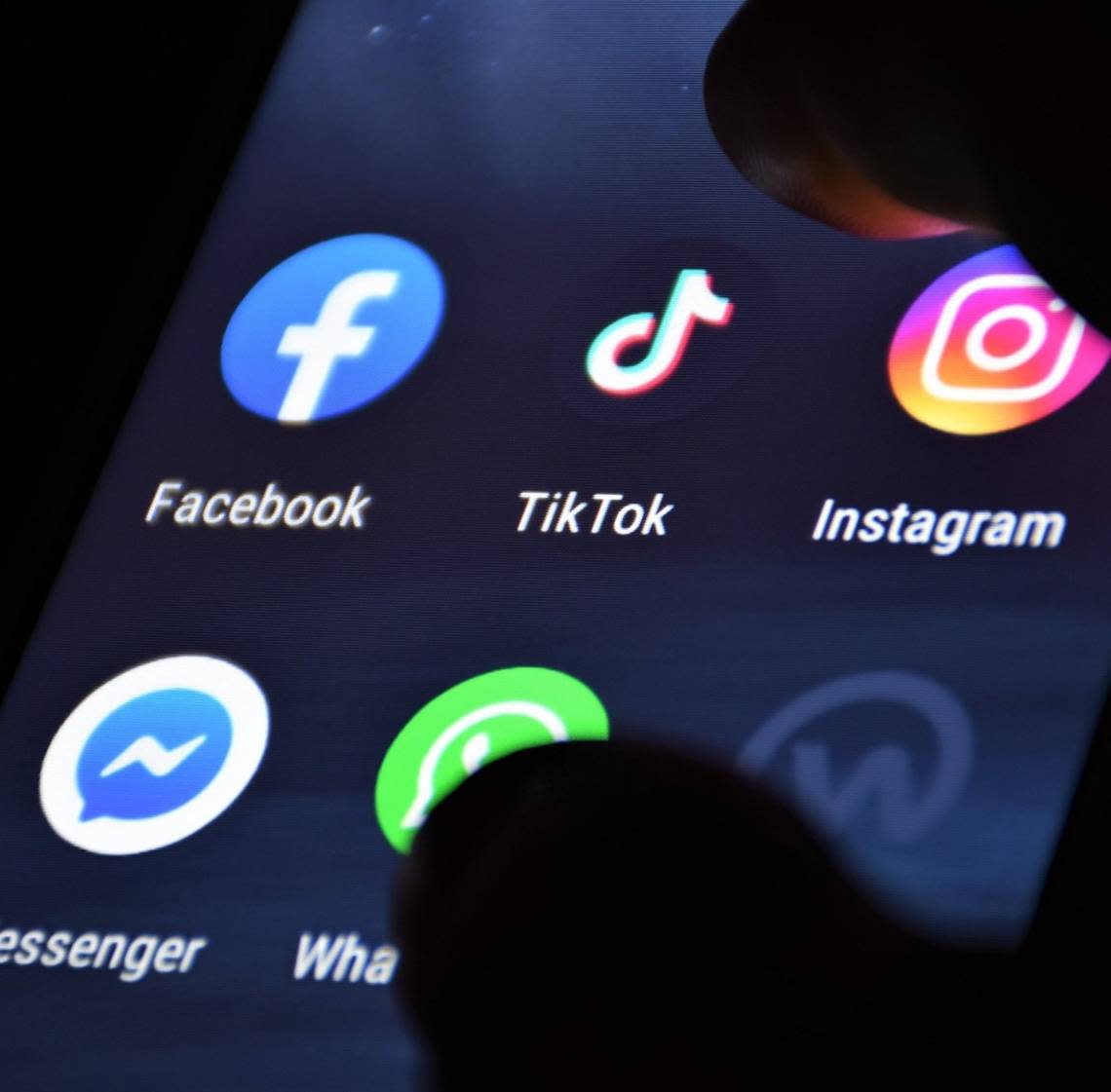The House voted to ban Tik Tok. How did your California member of Congress vote?

- Oops!Something went wrong.Please try again later.
On Wednesday, the U.S. House of Representatives voted 352-65 to ban the social media app TikTok in the U.S. unless its parent company — Beijing-based ByteDance — agrees to sell it.
Supporters of the measure say that it is a security risk for U.S. citizens to hand over their data to a Chinese-owned company, and that the Chinese Communist Party uses the app to spread government propaganda.
Opponents of the bill say that it unfairly singles out one social media app over others, and that TikTok is a vital source of information and communication for many, including marginalized communities such as people of color and the LGBTQ community.
After the bill passed, TikTok released a statement calling the bill a ban and saying it was “jammed through” the House.
“We are hopeful that the Senate will consider the facts, listen to their constituents, and realize the impact on the economy, 7 million small businesses, and the 170 million Americans who use our service,” the company said.
The bill had strong bipartisan support, including from a majority of lawmakers representing districts in the Sacramento, Northern California and Central Valley regions.
Republican Reps. Kevin Kiley, R-Roseville; Doug LaMalfa, R-Richvale; and David Valadao, R-Hanford; joined with Democratic Reps. Ami Bera, D-Elk Grove, and Doris Matsui, D-Sacramento, in voting for the ban.
Rep. Adam Schiff, D-Burbank, who is running for the late Sen. Dianne Feinstein’s Senate seat, also voted in favor.
Former House Speaker Nancy Pelosi, D-San Francisco, defended the bill in a floor speech, saying “This is not an attempt to ban TikTok. It’s an attempt to make TikTok better. Tic-tac-toe, a winner. A winner.”
She spoke of how Tibetans argue that they are suppressed on the app, and how China used the app to spread propaganda into Taiwan and Hong Kong about its treatment of the Uygher Muslim minority, which the U.S. government has described as genocide.
Democratic Rep. Josh Harder of Tracy did not vote on the bill.
However, two Republicans — Rep. John Duarte of Modesto and Rep. Tom McClintock of Elk Grove — voted against the proposal.
In floor remarks, McClintock questioned the wisdom of the bill.
“Do we really want to give the President the power to declare ‘foreign adversaries’ and then require a communications platform within them to be banned or sold to a government-approved owner?” McClintock asked.
McClintock said that consumers should be trusted to make their own decisions if there are data security concerns, and that if members of Congress are concerned about foreign propaganda, they should “defend the free and open debate that our First Amendment protects” and trust that people will sort the facts out for themselves.
“The last thing we should do is take that power away from the people and give it to the government. The answer to authoritarianism is not more authoritarianism. The answer to CCP-style propaganda is not CCP-style oppression. Let us slow down before we blunder down this very steep and slippery slope,” he said.
Despite overwhelming support in the House, the bill faces an uncertain future in the U.S. Senate, where lawmakers can filibuster a bill in order to force a 60-vote requirement.
McClatchyDC’s David Lightman and Gillian Brassil contributed to this story.

